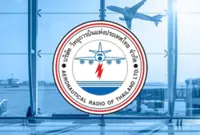In a few years’ time, ZeroAvia hopes to fly an electric aircraft powered by cryo-compressed hydrogen. — AFP Relaxnews
The dream of one day being able to use hydrogen-powered aircraft over long distances faces a number of technical challenges. Among them, the space and weight required to accommodate this type of fuel. Work on cryo-compressed hydrogen could go some way to solving this complex issue.
The Anglo-American company ZeroAvia, a pioneer in the development of hydrogen-powered electric aircraft, has signed a partnership with Verne, a specialist in cryo-compressed hydrogen. The aim is to one day be able to fly an aircraft over long distances with this type of fuel on board.
Usually encountered in gas or liquid form, hydrogen can also be cryo-compressed, ie, cooled to a very low temperature (below -253 degrees Celsius). This has the advantage of increasing the energy density of the gas, which in turn reduces the size and weight of the tanks needed to store it. According to Verne, cryo-compressed hydrogen can achieve 40% greater usable hydrogen density than in liquid form, and 200% higher than in gaseous form. In terms of safety, this configuration is also less flammable.
The aim of this partnership is to explore the potential of cryo-compressed hydrogen for powering electric aircraft. In particular, the aim is to optimize the range of these aircraft. On paper, cryo-compressed hydrogen could not only increase range, but also reduce refueling times. A well-honed technology could then help make electric aircraft more attractive to passengers.
Today, this technology is still under development, but ZeroAvia hopes to be able to carry out its first full-scale test in 2027, on an aircraft that can seat between 40 and 80 people, with an estimated range of 700 miles (approx. 1,120 km). – AFP Relaxnews





